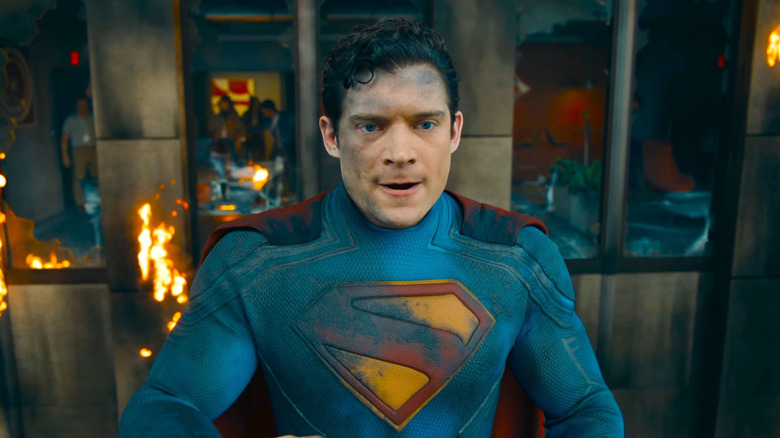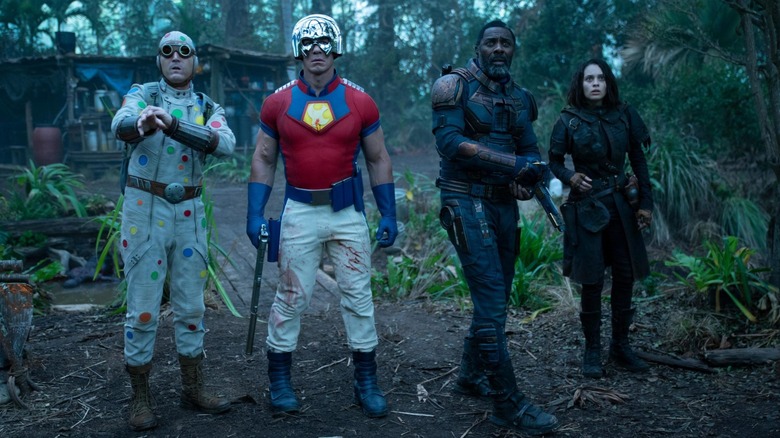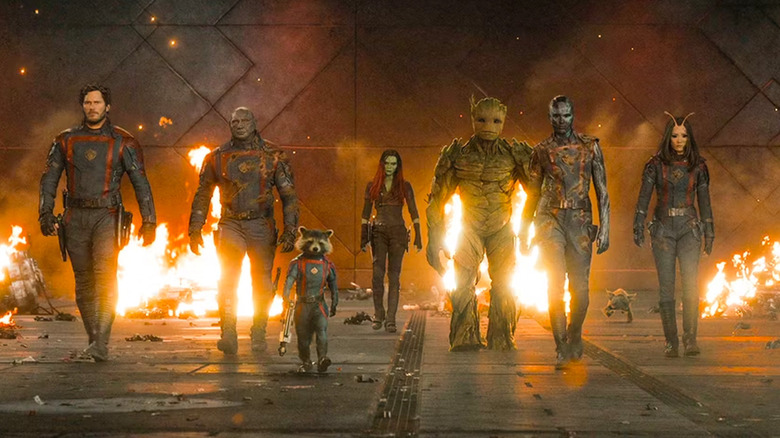It is no secret the theatrical expertise have been on the wane for a sizzling minute. The COVID-19 pandemic, in fact, took a heavy toll on film theaters; per a report by the Cinema Basis (through The Hollywood Reporter), the variety of lively screens in the USA shrunk from 41,172 in 2019 to 39,007 in 2022. That quantity has bounced again barely within the years since then, although, whereas worldwide ticket gross sales have additionally been slowly growing. On the identical time, we have but to see annual field workplace receipts come close to to matching the huge glut of 2019 within the pandemic period. That yr noticed $11.23 billion in ticket gross sales on the home field workplace. 2020, due to COVID-19, solely noticed $2.02 billion in ticket gross sales stateside, with that quantity ticking again as much as $8.96 billion in 2023 earlier than it dropped off a bit in 2024 to $8.62 billion.
These numbers, nonetheless, solely add to a common (bleak) milieu whereby characteristic movies, as a cultural power, appear to be on the wane. Folks, it appears, merely do not watch motion pictures as a lot anymore (no less than not in theaters), whereas youngsters aren’t obsessive about scripted TV exhibits or characteristic movies the best way they had been only a era in the past. (Anecdotally talking: The ten-year-olds I do know do not actually watch motion pictures.) We cinephiles maintain out for main hits — and so they do pop up steadily — however many people can see that the as soon as unshakeable cinematic monoculture of the late twentieth century has lengthy since been shaken.
This brings us to James Gunn, the director of a number of notable superhero flicks and a filmmaker who’s at the moment accountable for rebooting DC Comics’ shared universe of characters in movie and TV, with Gunn’s upcoming “Superman” serving as the primary film in his and Peter Safran’s new DC Universe. Gunn, having seen his share of each hits (his “Guardians of the Galaxy” movies) and flops (his “The Suicide Squad,” although that was largely as a result of pandemic), agrees that film theaters are shrinking as a well-liked venue for movie consumption — and he has a really palpable motive as to why that may be.
Gunn thinks mainstream filmmaking has gotten sloppy and rushed
As Gunn defined to Rolling Stone:
“I do imagine that the explanation why the film business is dying will not be due to individuals not eager to see motion pictures. It is not due to house screens getting so good. (…) The number-one motive is as a result of persons are making motion pictures with no completed screenplay.”
For years, cinema pundits have, as Gunn noticed, cited the diminishing curiosity in movie and enhancements in house setups as the explanations film theaters are on the decline. Many individuals desire to observe movies within the consolation of their very own houses the place they are often uninterrupted and have acknowledged they do not like attending motion pictures in public, as they bristle on the impolite habits of their fellow filmgoers. (Even Martin Scorsese feels this manner.) Additionally, there are too many commercials at most multiplexes, typically tacking 30 to 40 minutes of extra theater time to the common film. And once more, these points have solely been compounded by the fixed enhancements in home-viewing expertise, as some film followers appear to really feel {that a} 4K TV and high-quality streaming tech is superior to a contemporary projector.
To Gunn’s latter level, although, he is aware of what he is speaking about. Gunn has spent the final 12 years of his profession making effects-heavy superhero blockbusters for main studios like Disney and Warner Bros., and he appears to have witnessed, first hand, the sloppy filmmaking that goes into them. As has been reported earlier than, Marvel Studios (for whom Gunn made his “Guardians” motion pictures) has infamously engaged in bitter and unhealthy underbidding wars whereas in search of VFX homes it might probably rent for the most affordable worth. It is also an open secret that Marvel executives typically make huge modifications to movies on the final minute, forcing VFX artists to work additional time to re-do what they’ve already completed. It is the explanation why super-expensive, visible effects-forward motion pictures can nonetheless come out wanting so low-cost.
Gunn does not need the DCU to repeat Marvel’s errors
The Marvel machine, it needs to be remembered, is an meeting line overseen by govt producer Kevin Feige. Likewise, the preliminary promoting level of the Marvel Cinematic Universe was that its movies would interconnect just like the episodes of a massively costly TV present. As such, loads of the characters, costume designs, plot factors, and motion sequences in MCU motion pictures have been picked out and, in some circumstances, largely finalized earlier than a director is employed or a script is completed. Simply ask director Lucrecia Martel, who was instructed explicitly that if she wished to name the pictures on “Black Widow,” then she would not need to sweat the motion scenes.
This, as Gunn implied, has damage the MCU movie sequence and blockbusters usually. It is filmmaking by committee, with writers and administrators changing into mere workmen delivering a product. Not solely does an artist’s stamp vanish in such a system, however it additionally does not take too lengthy for tales to start struggling as effectively. This could be why current MCU movies like “Captain America: Courageous New World,” “The Marvels,” and “Ant-Man and the Wasp: Quantumania” have all felt roughshod and rushed; it is potential, even probably, cameras started to roll earlier than a closing script draft had been accomplished. Main studios at the moment are participating in the identical by-the-seat-of-your-pants philosophy as soon as employed by B-movie luminaries like Roger Corman.
By comparability, Gunn has mentioned on a number of events he desires the DCU to be extra director-friendly. He would additionally desire {that a} script be finalized earlier than filming begins. Time will inform if Gunn’s philosophy can produce a greater and extra standard breed of blockbuster … or if mainstream cinema will proceed to wane.
“Superman” hits theaters on July 11, 2025.




